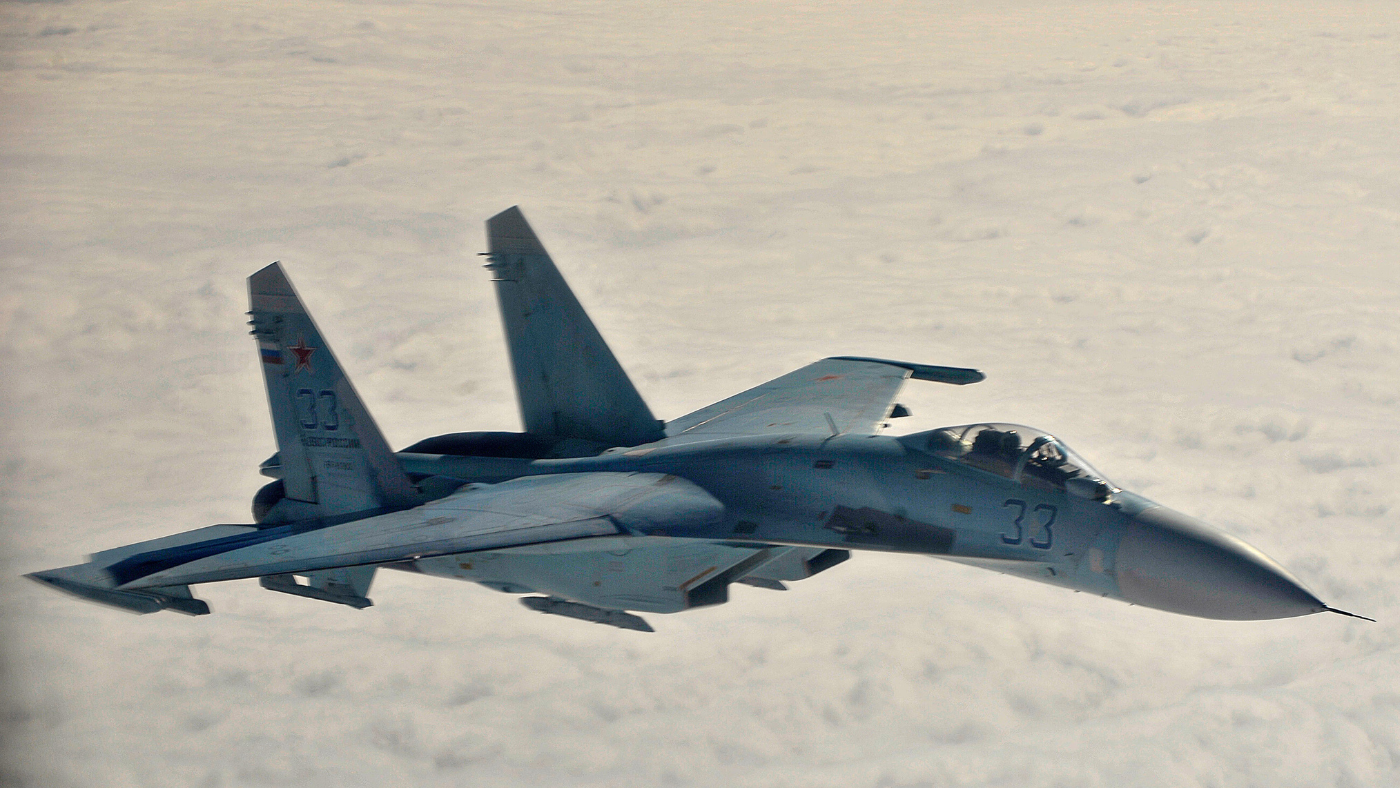Russian pilot 'tried to shoot down RAF plane'
'Ambiguous' communications triggered the potentially deadly incident in 2022, defence sources say

A free daily email with the biggest news stories of the day – and the best features from TheWeek.com
You are now subscribed
Your newsletter sign-up was successful
A Russian pilot attempted to shoot down an RAF surveillance plane last year, sources have told the BBC.
Moscow said at the time that a missile was released as a result of a "technical malfunction". But three "senior Western defence sources" have now told the broadcaster that communications intercepted by the targeted RAF plane "give a very different account".
The Week
Escape your echo chamber. Get the facts behind the news, plus analysis from multiple perspectives.

Sign up for The Week's Free Newsletters
From our morning news briefing to a weekly Good News Newsletter, get the best of The Week delivered directly to your inbox.
From our morning news briefing to a weekly Good News Newsletter, get the best of The Week delivered directly to your inbox.
According to the insiders, two Russian SU-27 fighter jets "encountered" the RAF RC-135 Rivet Joint plane in international airspace over the Black Sea on 29 September 2022. One of the Russian pilots is alleged to have released an air-to-air missile after their ground station controller reportedly used "ambiguous language" that was "to the effect of 'you have the target'".
The missile "failed to lock on to its target", the BBC reported. Despite being "sworn at" by his fellow wingman, who "did not think they had been given permission to fire", the pilot allegedly then released a second missile that "simply fell from the wing", suggesting it "either malfunctioned or that the launch was aborted".
The defence sources said the "loose" wording that triggered the launches revealed "a high degree of unprofessionalism by those involved".
Following the incident, then defence secretary Ben Wallace told MPs that "our analysis concurs that it was due to a malfunction". But leaked US intelligence documents indicated that the altercation "could have amounted to an act of war", The New York Times reported in April.
A free daily email with the biggest news stories of the day – and the best features from TheWeek.com
In response, the Ministry of Defence (MoD) said much of the leaked information was "untrue, manipulated or both".
The MoD may have been "reluctant to give the full details" of what had happened because "neither side wanted an escalation", said the BBC – and because "the UK would not want to publicise the extent of its intelligence gathering".
Following the latest revelations, the MoD told the site that "this incident is a stark reminder of the potential consequences of Putin's barbaric invasion of Ukraine".
Julia O'Driscoll is the engagement editor. She covers UK and world news, as well as writing lifestyle and travel features. She regularly appears on “The Week Unwrapped” podcast, and hosted The Week's short-form documentary podcast, “The Overview”. Julia was previously the content and social media editor at sustainability consultancy Eco-Age, where she interviewed prominent voices in sustainable fashion and climate movements. She has a master's in liberal arts from Bristol University, and spent a year studying at Charles University in Prague.
-
 Palantir's growing influence in the British state
Palantir's growing influence in the British stateThe Explainer Despite winning a £240m MoD contract, the tech company’s links to Peter Mandelson and the UK’s over-reliance on US tech have caused widespread concern
-
 Quiz of The Week: 7 – 13 February
Quiz of The Week: 7 – 13 FebruaryQuiz Have you been paying attention to The Week’s news?
-
 Nordic combined: the Winter Olympics sport that bars women
Nordic combined: the Winter Olympics sport that bars womenIn The Spotlight Female athletes excluded from participation in demanding double-discipline events at Milano-Cortina
-
 US, Russia restart military dialogue as treaty ends
US, Russia restart military dialogue as treaty endsSpeed Read New START was the last remaining nuclear arms treaty between the countries
-
 What happens now that the US-Russia nuclear treaty is expiring?
What happens now that the US-Russia nuclear treaty is expiring?TODAY’S BIG QUESTION Weapons experts worry that the end of the New START treaty marks the beginning of a 21st-century atomic arms race
-
 Epstein files topple law CEO, roil UK government
Epstein files topple law CEO, roil UK governmentSpeed Read Peter Mandelson, Britain’s former ambassador to the US, is caught up in the scandal
-
 Iran and US prepare to meet after skirmishes
Iran and US prepare to meet after skirmishesSpeed Read The incident comes amid heightened tensions in the Middle East
-
 Israel retrieves final hostage’s body from Gaza
Israel retrieves final hostage’s body from GazaSpeed Read The 24-year-old police officer was killed during the initial Hamas attack
-
 China’s Xi targets top general in growing purge
China’s Xi targets top general in growing purgeSpeed Read Zhang Youxia is being investigated over ‘grave violations’ of the law
-
 Ukraine, US and Russia: do rare trilateral talks mean peace is possible?
Ukraine, US and Russia: do rare trilateral talks mean peace is possible?Rush to meet signals potential agreement but scepticism of Russian motives remain
-
 Panama and Canada are negotiating over a crucial copper mine
Panama and Canada are negotiating over a crucial copper mineIn the Spotlight Panama is set to make a final decision on the mine this summer